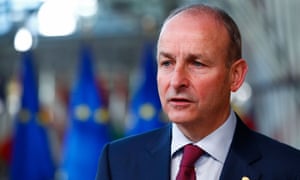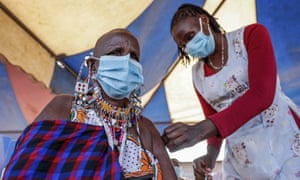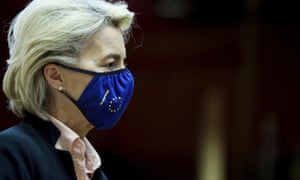12:59
Airlines cast doubt on flying unvaccinated passengers to Australia
Most international airlines who fly into Australia are likely to accept only vaccinated passengers, with larger carriers now considering whether it is logistically and commercially viable to sell tickets to unvaccinated travellers.
Some carriers have had their allocation of unvaccinated passengers capped at zero.
From Monday, when New South Wales and Victoria reopen for international travel and quarantine-free arrival for fully vaccinated Australians, the states will drastically scale back their hotel quarantine capacities for unvaccinated passengers.
NSW will accept 210 unvaccinated passengers a week, and Victoria 250.
Airlines have announced tens of thousands of extra seats on new services into Australia since the states announced an end to quarantine, but many carriers are yet to decide how or if they will comply with the new rules for unvaccinated passengers.
It is understood that the new unvaccinated passenger caps will be managed in a similar way to the broader passenger cap system that has been in place since July 2020, in which states set their own hotel quarantine limits, and the commonwealth – which is responsible for international border management – communicates passenger allowances to individual airlines for each service.
Some airlines have been given unvaccinated passenger caps of zero.
12:24
Vaccinated as likely as unjabbed to infect cohabiters, study suggests
People who are fully vaccinated against Covid yet catch the virus are just as infectious to others in their household as infected unvaccinated people, research suggests.
Households are a key setting for the transmission of Covid infections, with frequent prolonged daily contact with an infected person linked to an increased risk of catching the virus.
However, questions have remained including the true proportion of household contacts who become infected from an initial case, the duration of their infection, and the impact of vaccination on the risk of transmitting the virus and the chance of catching it.
Now a study has revealed that while vaccination against Covid is crucial to preventing severe disease and death, even fully jabbed individuals catch the virus – and pass it on.
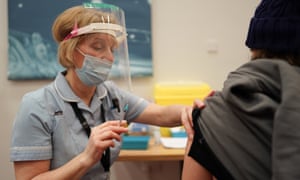
Writing in the journal the Lancet, researchers from a number of institutions including Imperial College London and the UK Health Security Agency (HSA) report how they analysed data from 204 household contacts of 138 people infected with the Delta variant.
Of these contacts, who were recruited within five days of their household member showing symptoms and were tested daily for 14 days, 53 went on to become infected, 31 of whom were fully vaccinated and 15 were unvaccinated.
10:12
All remaining countries on England’s travel “red list” will be removed and vaccines from at least a dozen more countries are to be recognised, ministers are expected to announce in a significant opening up of borders.
The move, which the Guardian understands was signed off at a meeting on Thursday afternoon, means no passengers arriving in England will have to quarantine in a hotel at a cost of more than £2,000.
However, the red list system will not be abandoned entirely, and countries may be added again in future if concerning new variants emerge.
The red list was slimmed down significantly at the last review, and only included South and Central American countries. The final ones to be removed will be Peru, Ecuador, Colombia, Panama, the Dominican Republic, Haiti and Venezuela.
The government is also preparing to recognise at least 12 more countries’ vaccines, meaning travellers from them can avoid needing to stay at home for up to 10 days if fully inoculated with an approved jab.
It came as the European Commission announced that UK certificates will be recognised as being equivalent in status to the bloc’s own digital Covid certificate from Friday.
09:25
Ryanair has promised to start refunding customers for cancelled flights within five working days, after criticism of its reimbursements policy during the pandemic.
The Dublin-based carrier, which has previously described itself as a “no-refunds airline”, has also announced significant improvements to the way it treats customers whose flights are delayed or cancelled.
At the start of the pandemic, when tourist travel was more or less banned, Ryanair, along with a number of other airlines, refused to refund customers who were unable to travel, if the flight went ahead.
It prompted a wave of criticism and led to an investigation by the Competition and Markets Authority into whether consumers had been treated fairly.
The CMA later dropped the action, but a few days later it emerged that the airline was barring passengers who had pursued chargeback refunds for the flights via their credit card company, unless they returned the money.
08:30
Travellers carrying an NHS Covid pass will be able to use it to prove that they are fully vaccinated when seeking entry at borders, bars and restaurants in the EU and 18 other countries.
The European Commission has announced that UK certificates will be recognised as being equivalent in status to the bloc’s own digital Covid certificate from Friday.
While many EU member states have already unilaterally recognised the NHS Covid pass, the long-awaited decision ensures it will be automatically accepted across Europe. Travellers to countries such as the Netherlands will no longer have to take daily Covid tests just to enter bars, restaurants and museums.
Didier Reynders, the EU commissioner for justice, said:
Safer travel is a reality thanks to the EU digital Covid certificate, which is now the leading global standard: 45 countries in four continents are connected to the system and more will follow in the coming weeks and months. We are open to other countries to join our system.
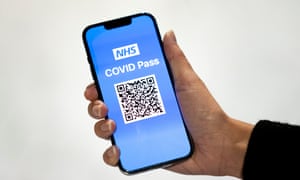
The commission took three months to assess the UK’s application for equivalence status, which will cover passes issued in England, Wales, Northern Ireland and Scotland.
Switzerland, Ukraine, Turkey and North Macedonia all secured the status within a period of five to eight weeks after applying. Vaccination certificates issued in Armenia will also be recognised from Friday, the commission said.
07:50
Over 100 million people fail to turn up for second Covid jab in India
More than 100 million Indians have not turned up for their second coronavirus vaccine dose, official data showed, raising concerns of a resurgence in the disease despite a relatively low infection rate.
Apart from leaving these people at risk of catching Covid-19, their “vaccine truancy” endangers India’s target of inoculating all adults by 31 December, a target that is in any case unlikely to be met owing to the earlier shortage of vaccines at the start of the inoculation campaign.
Bhavna Dewan, a health worker in Nainital, said:
We have seen this complacency with Tuberculosis patients. They start taking the drugs and after a few weeks, they feel better so they stop even though they have to take them for six months.
It’s a similar mentality with the vaccine. I’m sure they feel one dose is enough because no one is falling ill.
Mansukh Mandaviya, India’s Health Minister, is urging states to address the issue. From next month, he said, health workers will make door-to-door visits to find the truants.
The figure of 103.4m missed doses comes just a week after India celebrated administering 1bn doses thanks to the efforts of health workers who trekked over mountains, picked their way through landslide rubble, crossed turbulent rivers, and braved jungles to reach the remotest hamlets.
India has administered first doses to 725 million people, or to 77% of its’ 944 million adults, and second doses to 316 million, or 34%.









